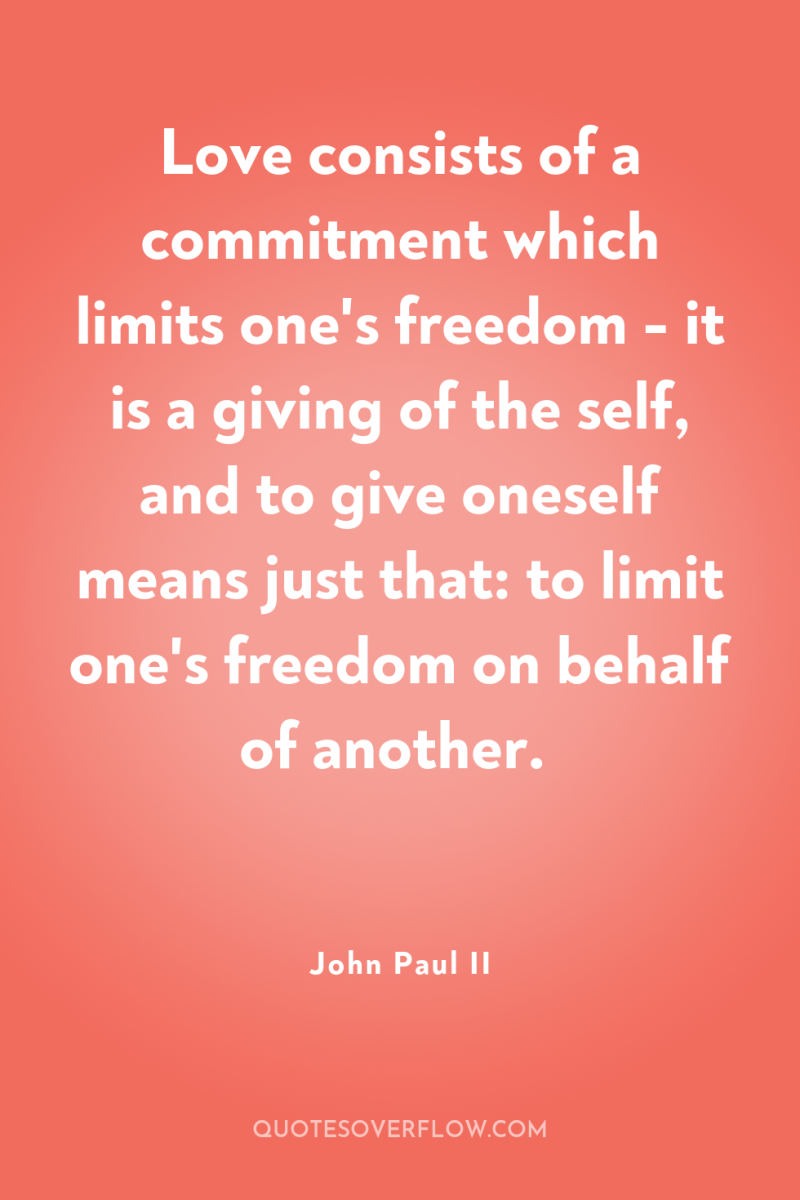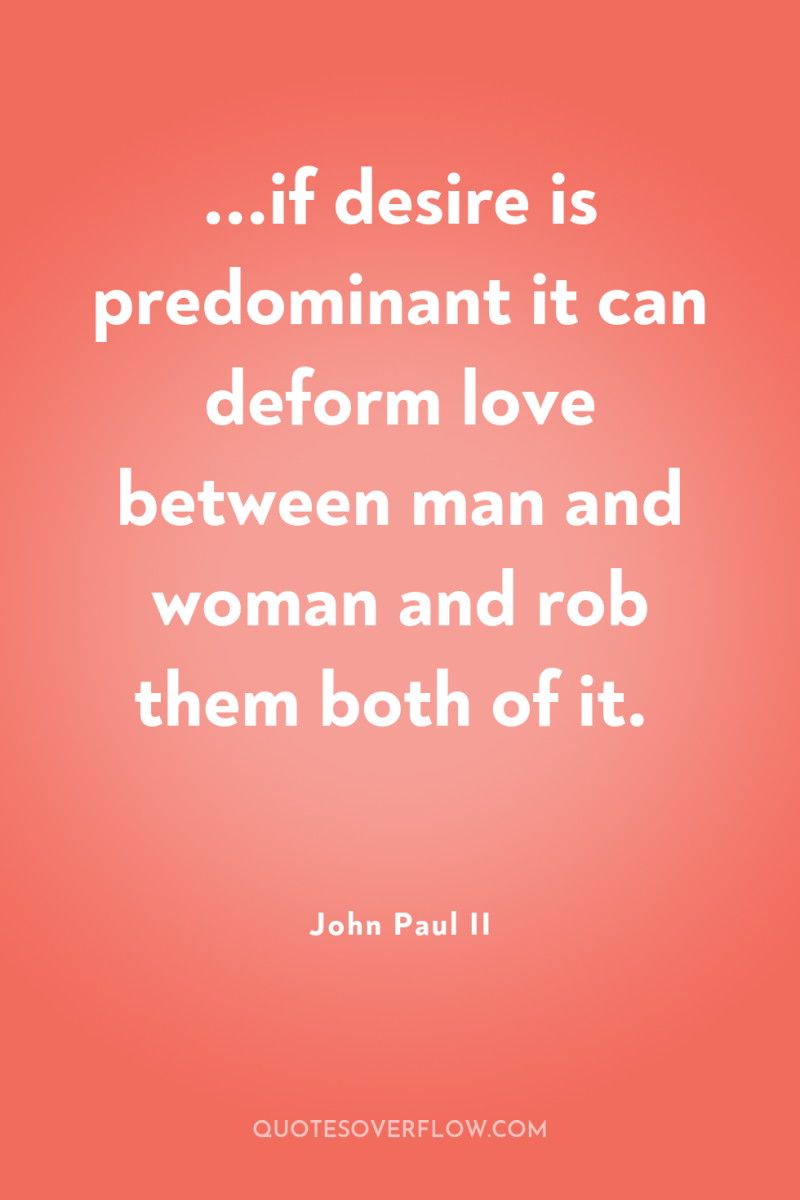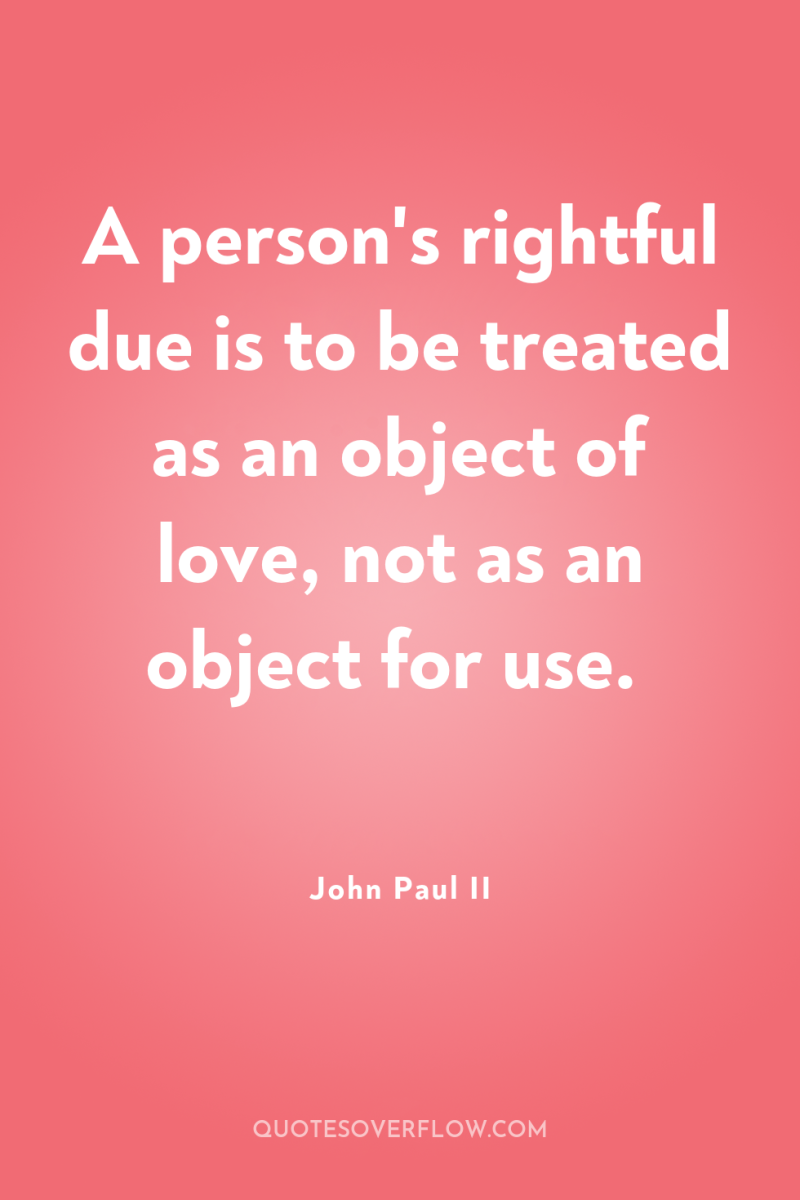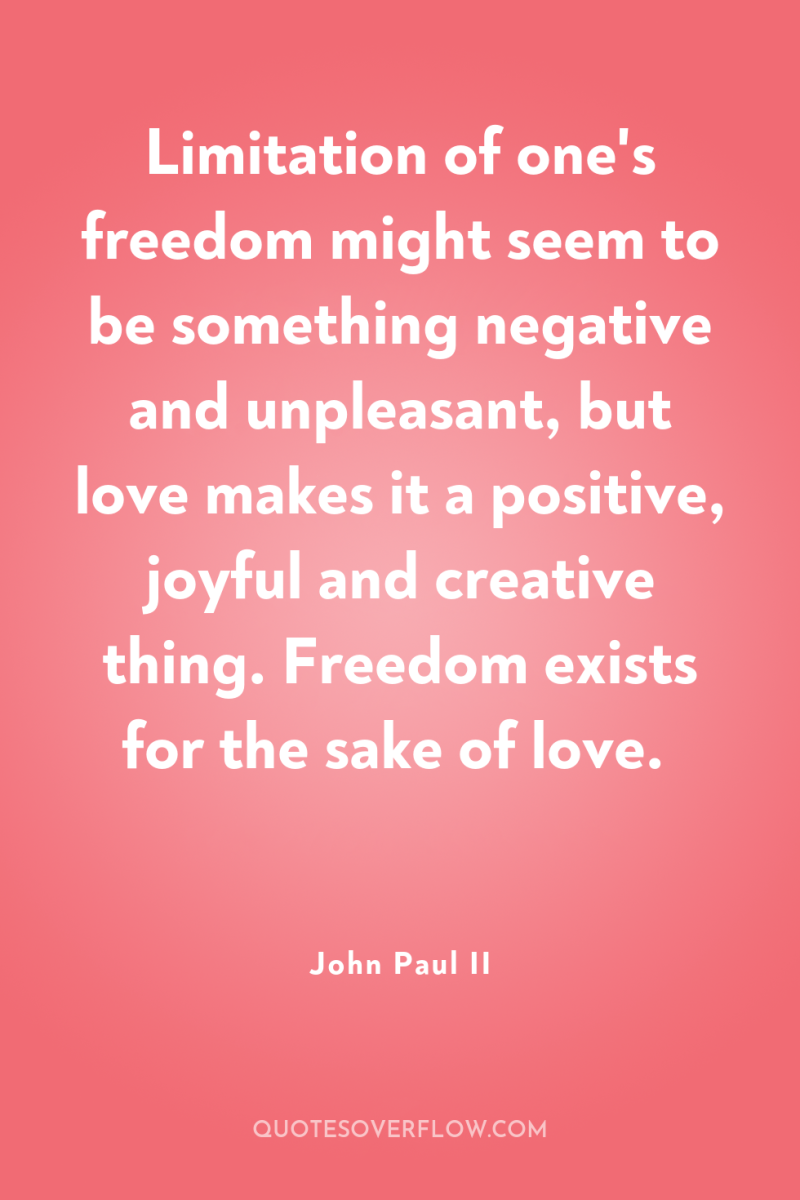1
No one else can want for me. No one can substitute his act of will for mine. It does sometimes happen that someone very much wants me to want what he wants. This is the moment when the impassable frontier between him and me, which is drawn by free will, becomes most obvious. I may not want that which he wants me to want - and in this precisely I am incommunicabilis. I am, and I must be, independent in my actions. All human relationships are posited on this fact. .John Paul II

2
Love consists of a commitment which limits one's freedom - it is a giving of the self, and to give oneself means just that: to limit one's freedom on behalf of another.John Paul II

3
...if desire is predominant it can deform love between man and woman and rob them both of it.John Paul II

4
A person's rightful due is to be treated as an object of love, not as an object for use.John Paul II

5
Friendship, as has been said, consists in a full commitment of the will to another person with a view to that person's good.John Paul II

6
Love between man and woman cannot be built without sacrifices and self-denial.John Paul II

7
Limitation of one's freedom might seem to be something negative and unpleasant, but love makes it a positive, joyful and creative thing. Freedom exists for the sake of love.John Paul II

8
Take away from love the fullness of self surrender, the completeness of personal commitment, and what remains will be a total denial and negation of it.John Paul II
9
The capacity to love is determined by the fact that man is ready to seek the good consciously with others, to subordinate himself to this good because of others, or to subordinate himself to others because of this good.John Paul II
10
Treating a person as a means to an end, and an end moreover which in this case is pleasure, the maximization of pleasure, will always stand in the way of love.John Paul II
11
God allows man to learn His supernatural ends, but the decision to strive towards an end, the choice of course, is left to man's free will. God does not redeem man against his will.John Paul II
12
A person is an entity of a sort to which the only proper and adequate way to relate is love.John Paul II